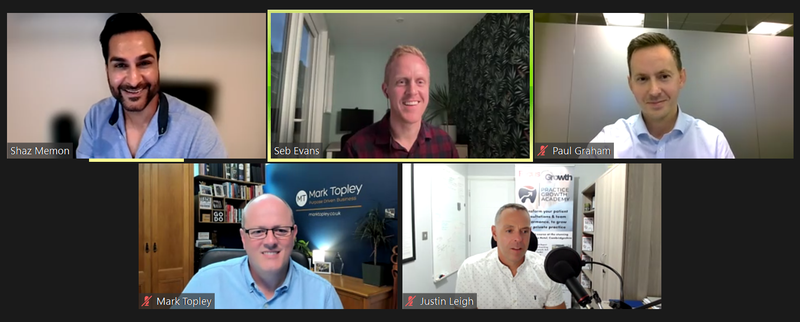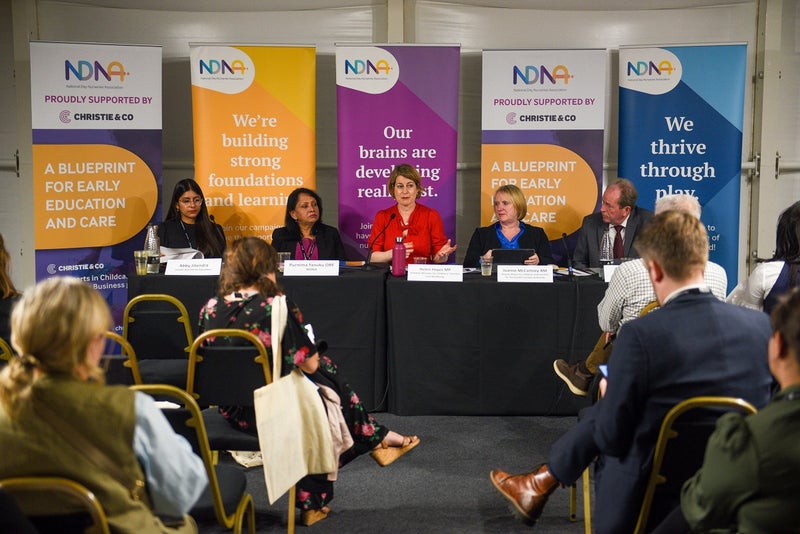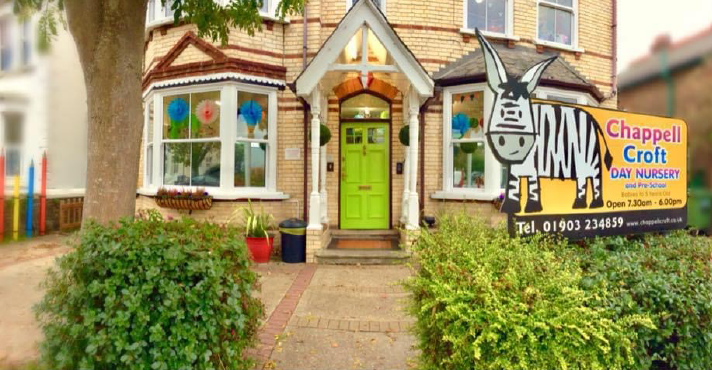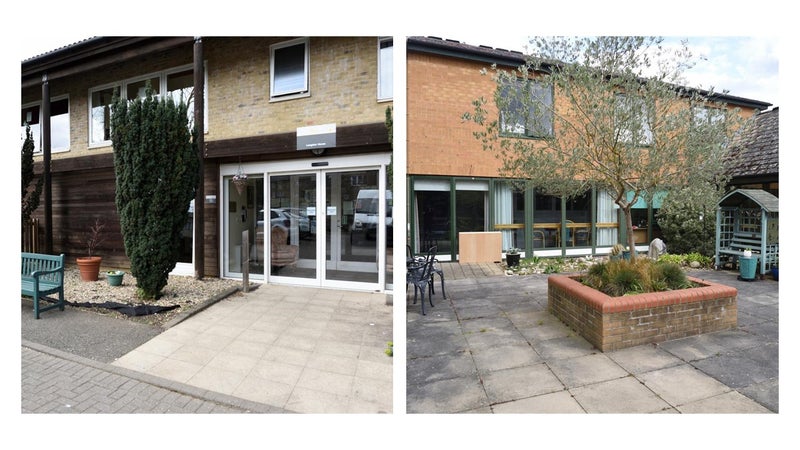Christie & Co hosts seminar for buyers in the day nursery sector
At Christie & Co we have seen unprecedented levels of activity in the Childcare & Education market in 2018, and most interestingly have found that 10% of single settings sold during the first six months of this year were acquired by first time buyers. Due to the growing appetite of first time entrants to the sector, it seemed fitting to gather aspiring operators together to share our advice, insight and expertise on what to expect before, during and after the acquisition of your first day nursery business.
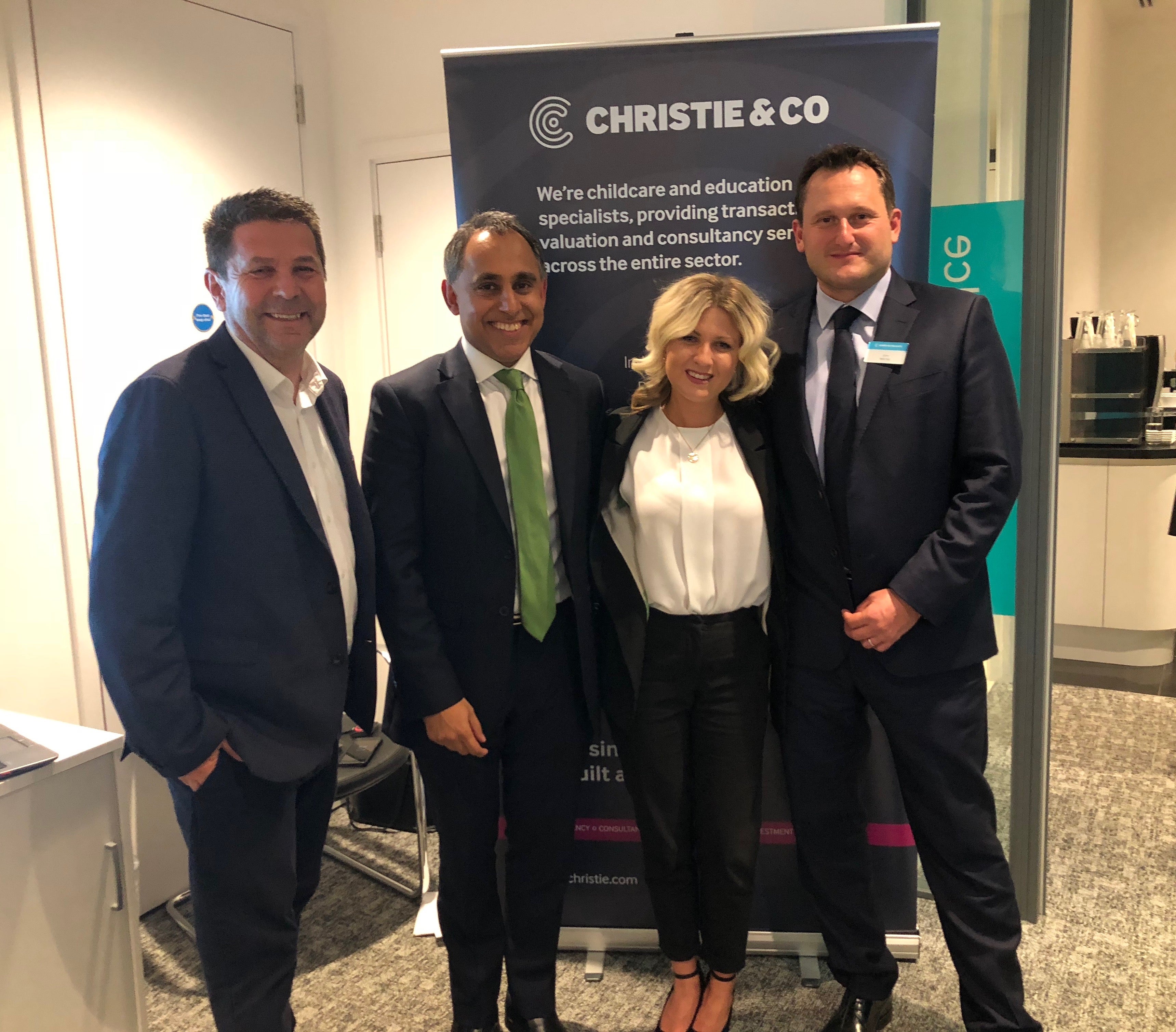
We hosted our first time buyers seminar at our London office on Wednesday 26th September, which featured my ‘top tips’ presentation, specifically created for those looking to purchase their first setting, and was complemented by talks from our esteemed panel of guest speakers: John Mitchell from Christie Finance, John Warren from John Warren Consultancy, and Jas Singh from Pickford Solicitors.
Starting with the do’s, don’ts and top tips, one of the key points in the presentation was the importance of thorough research and preparation before even starting to look at nursery businesses for sale. There is a lot to consider, such as developing an in depth and working knowledge of the sector and market, the pros and cons of purchasing a freehold, leasehold or license agreement, and knowing your budget, alongside having a clear understanding of your requirements and vision for your nursery business. While Christie & Co can support and provide advice on all of these aspects, it is also important to have a team of specialists in your corner, from financial advisers, to legal experts and consultants. That’s why we pulled together our guest speakers to cover all angles!
John Mitchell discussed how Christie Finance has a network of over 50 different lenders to find the right backing for a buyers’ individual needs. As a first time buyer, it is often harder to find funding with the larger banks without substantial collateral or deposit, so going to smaller or alternative lenders could open up more opportunities for backing, which you might never have known or considered. Before all else though, it is imperative to look at funding in the first instance so that you have a realistic idea of your budget to better frame your business search.
As a previous Ofsted inspector and current consultant to new and existing operators, John Warren highlighted how having the right mix of passion for childcare and business mindedness will build a successful setting. One often overlooked but vitally important consideration is managing the transition period when buying an existing business. Communicating with staff, and parents and not making drastic, immediate changes will help to ensure employee retention and a smooth continuation of the operation.
From a legal standpoint, Jas Singh observed that there are two key things to consider during the due diligence process of buying a day nursery business; people and property. With people, this refers to the staff and being fully aware of rights to work, national living wage, and DBS issues because once you take on a business, you are responsible for all matters relating to these, amongst many others. Similarly, with property, any contracts, building classifications, or council requirements or restrictions need to be clearly understood prior to taking on ownership and the associated responsibilities and possible liabilities.
The expert panel of nursery sector consultants and advisors also contributed to answers for various questions posed by the audience, including whether it is better to buy an existing business or start a business from scratch, how to prepare for Ofsted interviews and inspections, the length of time it can take to complete a transaction, and top tips on how first time buyers can compete to secure acquisition opportunities amid stiff competition from other buyers such as corporates groups, investors and more experienced operators.
Overall, it was agreed that while there is no right or wrong way to approach the creation of your first business, it can be easier, quicker and more cost effective in the short term to purchase an existing day nursery. This makes dealing with Ofsted smoother as the setting you acquire in most instances will already have been inspected by Ofsted and be a cash positive established business, with defined and established policies and procedures which have been tested. Preparing for Ofsted shouldn’t necessarily be your main objective, rather just be aware of covering all the basic requirements from their guidelines and focus on providing the best setting possible for your children and your staff and the rest will follow. While every transaction, just like every day care business, is different, you can expect to have a purchase completed in two to three months from having your offer accepted.
Lastly, all of us on the panel felt that as first time buyers, you should never feel that you are at a disadvantage in having to compete for acquisition opportunities against larger or more experienced candidates – what you can offer and bring to the table is unique. It helps to be informed and have an experienced team around you on the technical side of the acquisition but particularly your ethos and passion will carry through. Business owners want someone who truly cares to take over their setting and want to be reassured that it is in the right hands, as they have often developed a bond with the staff, children and parents, so the relationship that you develop with owners that are contemplating the sale of their business is key.
With more and more first time buyers entering the market, which itself is 80% comprised of single or small group setting operators, it is clear there is plenty of opportunity for those looking to embark on their dream of buying a childcare business.
